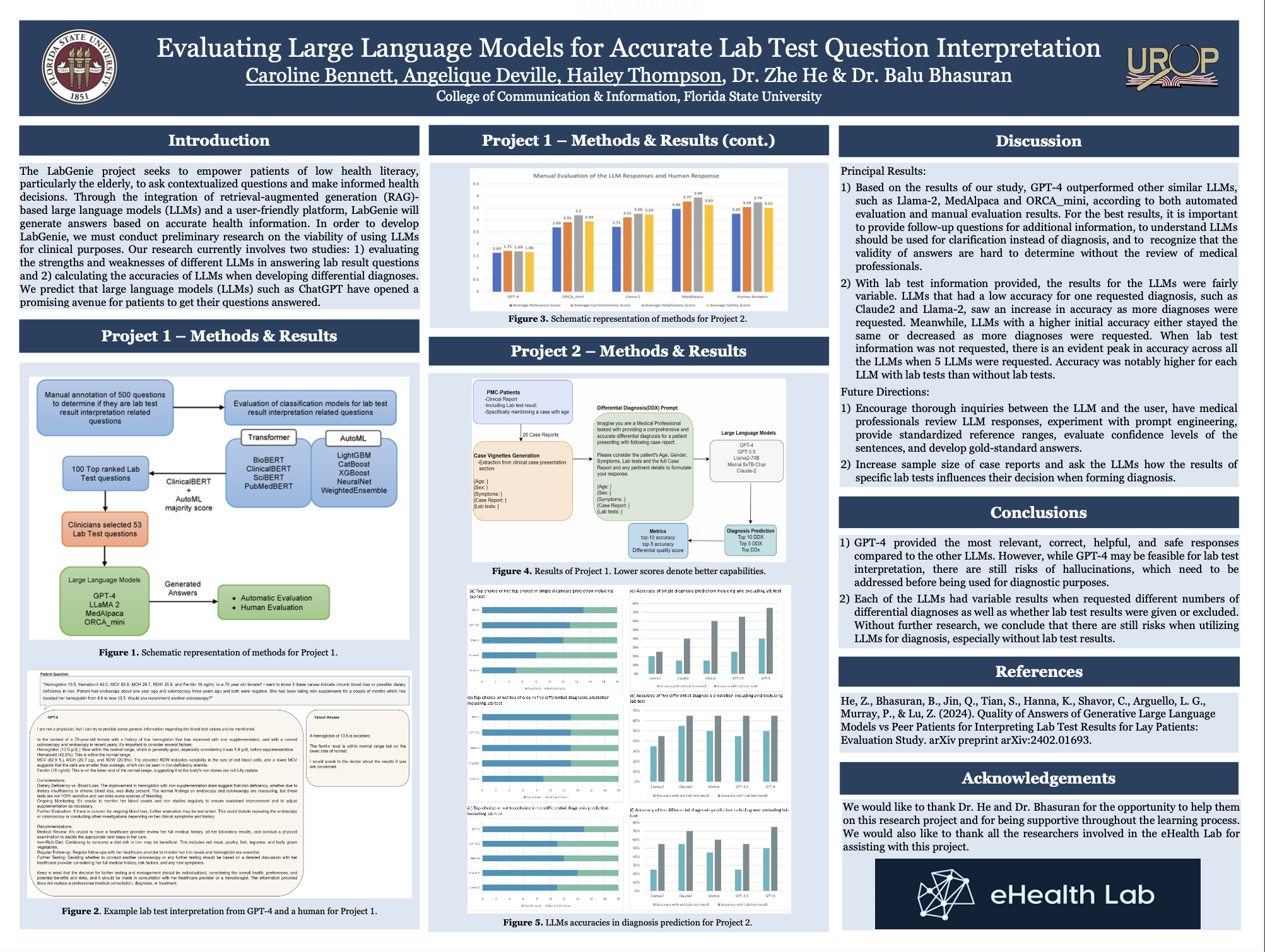Research Symposium
24th annual Undergraduate Research Symposium, April 3, 2024
Hailey Thompson Poster Session 3: 1:30 pm - 2:30 pm/402

BIO
Hailey Thompson, a third-year international student from Ocho Rios, Jamaica, enjoys coding, reading, and volunteering. She is deeply passionate about her research interests in artificial intelligence, data science, and health informatics. Looking ahead, Hailey aspires to pursue graduate studies in data science, hoping to delve deeper into data analysis and machine learning to address societal challenges. She plans to continue her research endeavors in the eHealth Lab alongside her mentors, Dr. He and Dr. Bhasuran. With her passion and determination, Hailey is excited to make a meaningful impact in data science and beyond. Alongside her studies, she actively engages in community service. She is active in organizations such as the Alliance for Black Women, the Jamaican-American Student Association, Women in Computer Science, and the Caribbean Student Association.
Evaluating Large Language Models for Accurate Lab Test Question Interpretation
Authors: Hailey Thompson, Zhe HeStudent Major: Computer Science
Mentor: Zhe He
Mentor's Department: School of Information Mentor's College: College of Communication & Information Co-Presenters: Caroline Bennett & Angelique Deville
Abstract
The LabGenie project aims to address the challenge of patients, especially the elderly, in understanding medical lab test results and acting upon them. Even though generative AI models such as ChatGPT can answer questions, patients may not know what questions to ask, and they may also generate answers with inaccurate information or hallucinations. In the eHealth Lab, we are developing informatics strategies to augment large language models (LLM) by 1) identifying credible health sources for lab test result interpretation, and 2) curating these sources to computable format. As such, they can be used for question prompt enrichment with human input and retrieval-augmented generation (RAG). The ultimate goal is to integrate the RAG-based LLMs with a user-friendly interface for patients. LabGenie seeks to allow patients with low health literacy to ask contextualized questions and make informed health decisions with their providers confidently. The research involves literature reviews on LLM capabilities in clinical settings, converting lab result interpretation into a table format, and evaluate strengths and weaknesses of different LLMs in answering lab result questions. These procedures aim to provide meaningful results to train LLMs and contribute to the creation of LabGenie.
Keywords: AI, Health Literacy, Lab Result Interpretation

